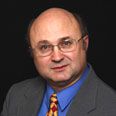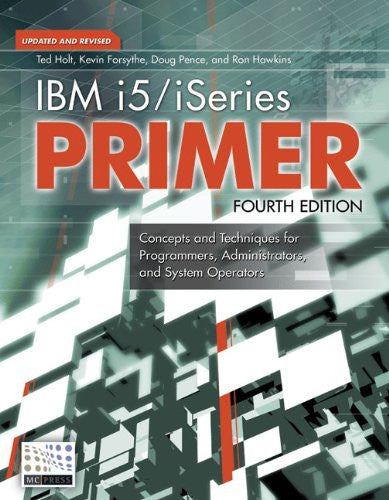Many years ago, a certain factory I was acquainted with had a receptionist named Sarah. Sarah’s primary duty was to answer the telephone and transfer calls to the other employees. Between calls, she did light clerical work and read trashy romance novels. One day, the local management decided to replace Sarah with a computer—or a “touchtone automated attendant” as they called it. It was more efficient (read “cheaper”) because it would work 24 hours a day and would eliminate the expenses of salary, insurance, Social Insecurity, Medicare, state and federal unemployment, and such. The light clerical work was palmed off on other already-overworked people, and as for the trashy romance novels, there were enough scandals among the employees that the novels weren’t necessary anyway.
It seems that almost every business in America of any size now has a cybernetic receptionist. Even Midrange Computing has one. If you’ve called our corporate headquarters, you’ve heard the spiel: “If you want customer service, press 1; if you wish to speak to someone in ad sales, press 2; if you’re Ted calling to tell us that your article is going to be late again, press 3” and so forth.
However, according to a survey by Strategic Development Associates (SDA), people are not impressed with these mechanical operators. This and other tidbits of speech recognition miscellany were reported in the August/September 1998 issue of Speech Technology Magazine (www.speechtechmag.com/st14/st14news.htm).
The statistic that most surprised me was that 40 percent of business callers “zero out” so that they can speak to a human being—even when they know the extension number of the person to whom they want to speak! Over half of callers zero out when prompted to spell the “callee’s” last name. I can’t vouch for the authenticity of these numbers, but I wouldn’t be surprised to learn that they’re true.
When asked what they would prefer, respondents overwhelmingly replied that they wanted speech recognition systems.
This brings me to a second survey: the 1999 Speech Scorecard, produced by the Voice Interface Services group of Nuance Communications. This study was undertaken to quantify “satisfaction, attitudes, and opinions of consumers of speech recognition systems” and is available for download at www.nuance.com. As with the SDA survey, I don’t know
how scientific these results are, but they are interesting nonetheless. The following are quotes from Nuance’s press release:
• 83 percent of respondents were satisfied with the speech systems they used.
• 74 percent of respondents found a speech system better than or equivalent to talking to a person for accessing information and completing transactions.
• 83 percent of respondents preferred to speak responses rather than use a touchtone keypad to enter information.
If this is the trend, “voice mail jail” may soon be a thing of the past. Instead of punching the wrong series of buttons and waiting 30 minutes until a human comes online to tell us that we’ve got the wrong extension, we’ll be able to say the words “accounts receivable,” and the computer will transfer us to the voice mail of someone who (unbeknownst to us) was fired six months ago.
However, Nuance must be on to something. Charles Schwab & Co. is using the Nuance system to let customers trade mutual funds by phone with simple voice commands.
In case you haven’t noticed, speech recognition technology has gotten better lately. Here are just a few of the improvements:
• It used to be that you had to pause between each of the words you spoke. Now, products like Dragon Systems’ NaturallySpeaking (www.dragonsys.com), IBM’s ViaVoice (www-
4.ibm.com/ software/speech/), and Lernout & Hauspie’s Voice Xpress (www.lhs.com) process continuous speech.
• Accuracy is better. When you first crank up one of these products, you can expect it to recognize about 80 percent of your words. Once you’ve “trained” the software, accuracy climbs to 95 percent or more. NaturallySpeaking has special dictionaries of medical and legal terms; these dictionaries help the software recognize the many special terms used by the people who work in these fields.
• More applications are supported. Earlier editions of some of these packages pasted the spoken word into a notepad. It was up to the user to copy from the notepad into another application (such as a word processor). Now, these packages directly feed popular software, especially Microsoft Word and Corel WordPerfect.
Speech recognition software has already proven beneficial to people with physical disabilities. With speech recognition software, they can navigate Windows, enter text into word processing and email documents, and surf the Web. In fact, not only can they speak to their PCs, but their PCs can also speak to them. If this is a subject of interest to you, two IBM Web sites you should visit are www-4.ibm.com/software/speech/ and www.austin.ibm.com/ sns/hpr.html.
Those of us who are responsible for maintaining application software should take note of this trend because it portends what must eventually happen in our shops. If it hasn’t happened already, it’s only a matter of time until someone walks into your office and says, “I’ve got ViaVoice on my computer at home. When do you think I could get it on my computer here?”

















 Business users want new applications now. Market and regulatory pressures require faster application updates and delivery into production. Your IBM i developers may be approaching retirement, and you see no sure way to fill their positions with experienced developers. In addition, you may be caught between maintaining your existing applications and the uncertainty of moving to something new.
Business users want new applications now. Market and regulatory pressures require faster application updates and delivery into production. Your IBM i developers may be approaching retirement, and you see no sure way to fill their positions with experienced developers. In addition, you may be caught between maintaining your existing applications and the uncertainty of moving to something new. IT managers hoping to find new IBM i talent are discovering that the pool of experienced RPG programmers and operators or administrators with intimate knowledge of the operating system and the applications that run on it is small. This begs the question: How will you manage the platform that supports such a big part of your business? This guide offers strategies and software suggestions to help you plan IT staffing and resources and smooth the transition after your AS/400 talent retires. Read on to learn:
IT managers hoping to find new IBM i talent are discovering that the pool of experienced RPG programmers and operators or administrators with intimate knowledge of the operating system and the applications that run on it is small. This begs the question: How will you manage the platform that supports such a big part of your business? This guide offers strategies and software suggestions to help you plan IT staffing and resources and smooth the transition after your AS/400 talent retires. Read on to learn:
LATEST COMMENTS
MC Press Online